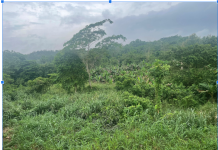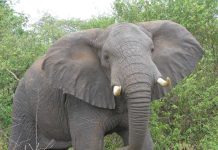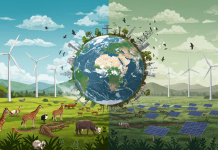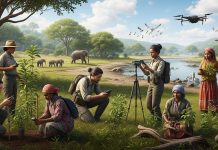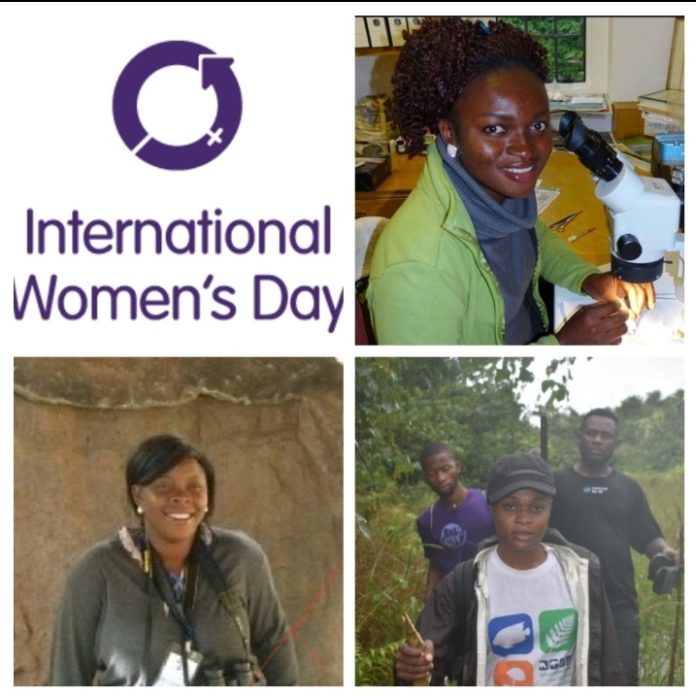It is another March 8, the International Women’s Day, a time specially set aside to appreciate and celebrate women.
This year’s theme is #EachforEqual and we are commemorating IWD 2020 by celebrating the achievements of three leading women in the field of conservation in Nigeria. These women have given voice to the voiceless flora and fauna of Nigeria. They deserve resounding ovation.
Meet Rachel Ikemeh, Iroro Tanshi and Stella Egbe in our International Women’s Day special.
Rachel Ashegbofe Ikemeh
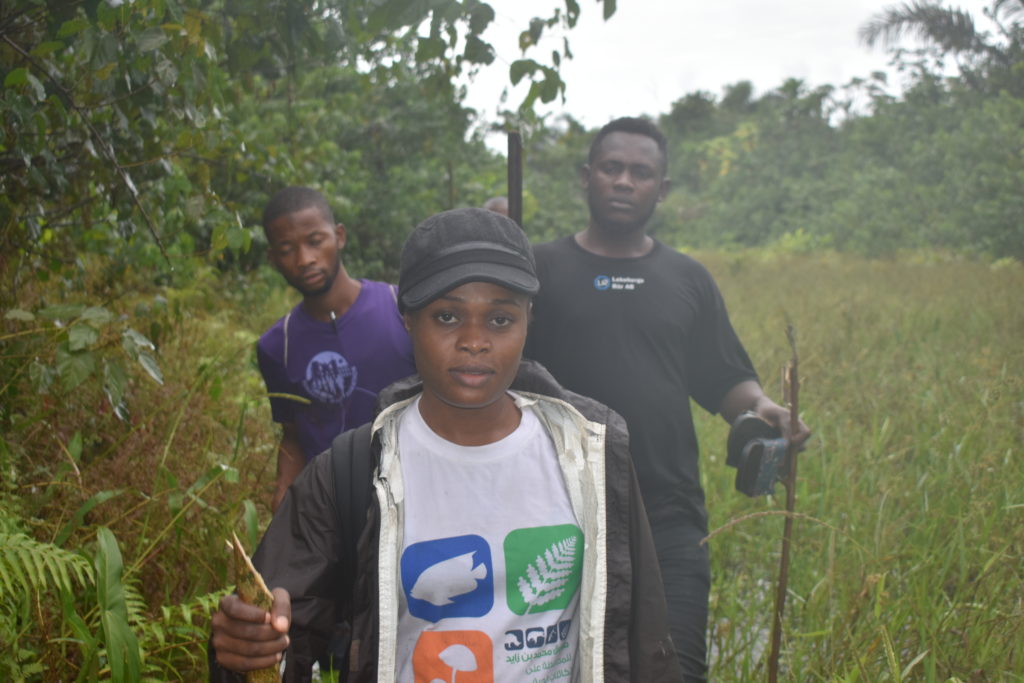
Rachel is the Project lead/founder of the SW/Niger Delta, a non-governmental organization pioneering conservation actions for a small but unique population of endangered chimpanzees in southwestern Nigeria and for critically endangered Niger Delta Red Colobus monkey across their range – another rare species of primates found only in Bayelsa State, Nigeria. The project’s efforts span over 5,000km2 of highly threatened forest landscape.
Read Also: Experts make case for intensified effort in Cross River gorilla conservation
Her contributions and commitments to primate conservation earned her a seat on the International Primatological Society (IPS) Conservation and Education committees. She is the Co-Vice Chair Africa section of the IUCN/SSC Primate Specialist Group and a member of the United Nations Commission on Sustainable Development (UNCSD) Education Caucus. She also co-led the steering committee that founded the African Primatological Society (APS).
Rachel is committed to all of these groups and always seeks ways to maximize her associations with these networks and explore opportunities for collaboration to promote African leadership an enhance primate conservation across board.
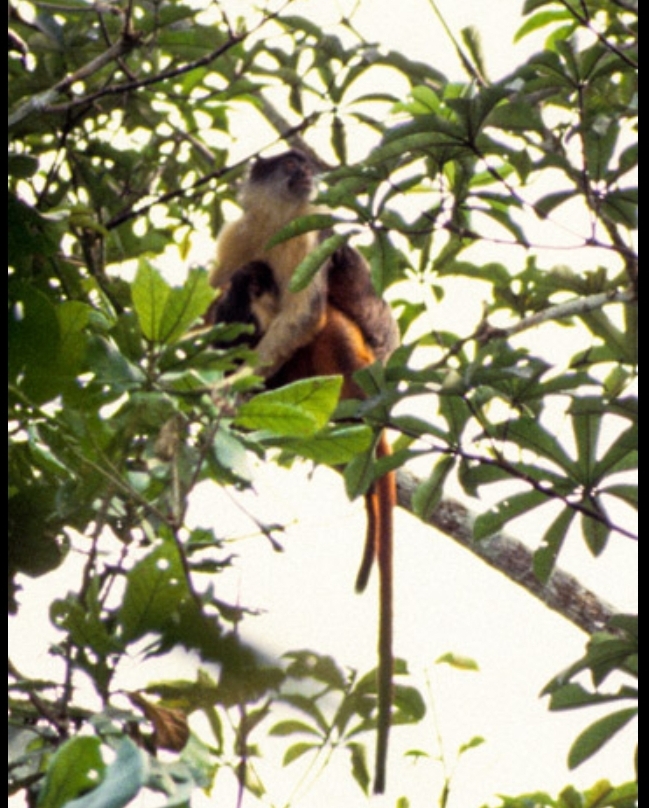
Photo: Noel Rowe
She is an alumni of the Durrell Institute of Conservation and Ecology (DICE), University of Kent, U.K where she studied for a degree in Conservation Project Management. She is a two-time nominee of the Future for Nature Awards and twice long-listed for the Whitley Awards also well-known as the ‘Green Oscars’. She recently became a National Geographic Explorer.
For more than a decade she has worked in the Guinean Forests of West Africa which is home to over 2,200 unique plant and animal species. The threatened primates on which she has focused serve as a reference point for the broader assemblage of threatened species and bolster her efforts to engage local communities in their protection. Rachel offers an excellent example of how to combine a specialized education, training and field experience to serve as a conservation leader. Her purpose driven work provides critical link between the Nigerian government and the people sharing the habitat with some of the world’s most unique but threatened species.
Iroro Tanshi
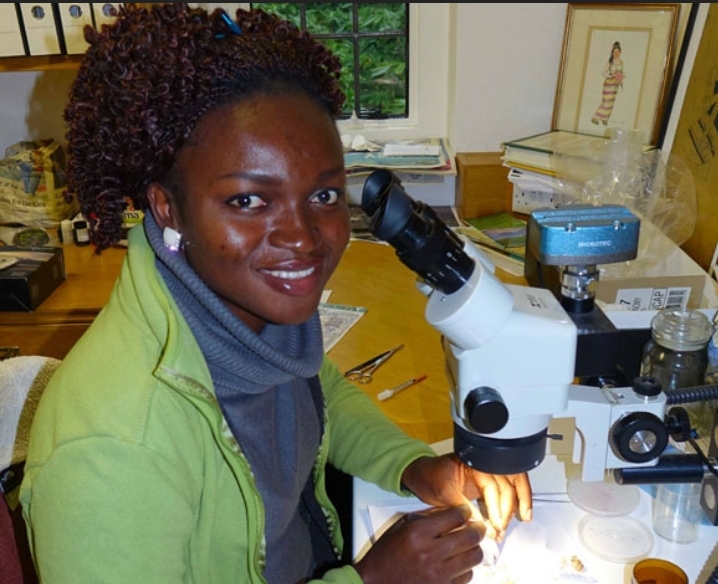
Iroro Tanshi is an award-winning Nigerian bat ecologist and conservationist, whose interest spans research on landscape, community and population ecology of bats that generate evidence for conservation of threatened bat species. She is also passionate about raising the next generation of biologists and conservationists, while developing local infrastructure for research and conservation.
Read also: SaveTheVultures: They need all the help
Her career spans more than a decade during which she has a track record of species protection, worked with policy makers and mentored budding conservationists. Iroro is a lecturer at the University of Benin. She is currently finishing a doctoral program at Texas tech University, Lubbock, USA, where she’s also a teaching assistant. She holds two Masters’ degrees in biodiversity and conservation from the University of Benin, and University of Leeds. As part of her efforts to conserve Nigerian bats and raise capacity of local conservation scientists, she co-founded a Nigerian based NGO – Small Mammal Conservation Organisation (SMACON). She is also a founding member and first co-Chair of Bat Conservation Africa (BCA) – a network of bat researchers and conservationists working to protect African bats. During her leadership of BCA, she helped fund raise to support researchers and institutions with important library resources and organized a workshop to train budding scientists on important bat research skills. Iroro initiated the Bats of Nigeria Project and is a strong critic against wide spread misconduct and sub-par research in Nigerian science.
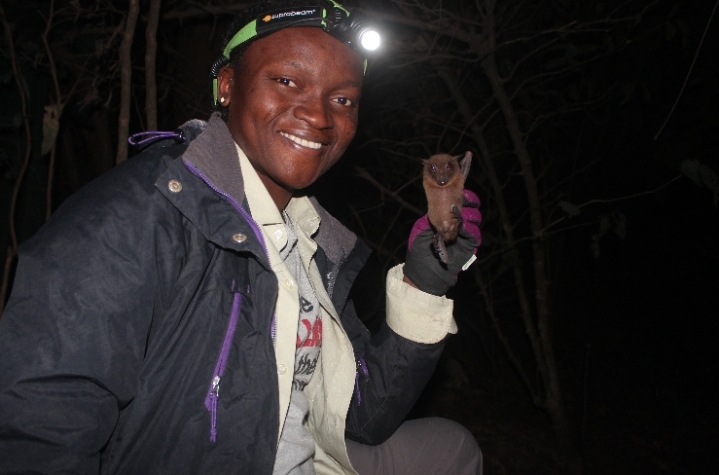
Iroro is currently working on conserving foraging habitat and roosting caves of the range-restricted endangered Short tailed roundleaf nosed bat, Hipposideros curtus. The major threats to the species are habitat loss from wildfires and cave disturbance from fruit bat hunting, which in addition to declining population is driving the species to the brink of extinction. The key strategy to reducing these threats to this species is working with local farmers and fruit bat hunters, through collaborating with other NGOs and relevant government agencies.
Stella Egbe
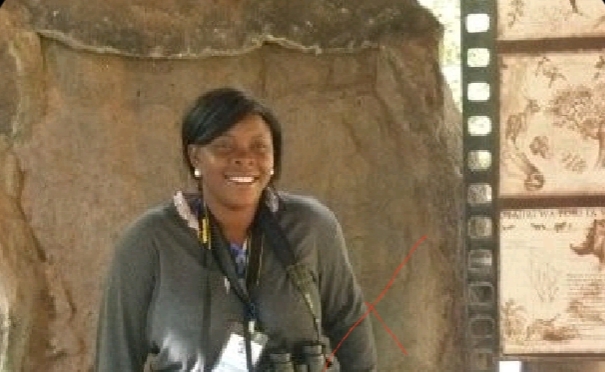
Stella is a conservation biologist who has worked extensively on maintenance of habitat integrity to avoid loss of biodiversity which — if it happens — would be detrimental to man and wildlife. She holds strongly that continuous research is the key to understanding the landscape and land use interactions which will provide basic knowledge for sustainable habitat use.
Read also: APLORI trains young scientists on field ornithology, biostatistics, others
Balancing the needs of humans while maintaining ecosystem quality in Nigeria is what has kept her forging ahead in the field of conservation. Stella holds strongly that mitigating negative anthropogenic activities, while learning and enjoying all that nature has to offer is a key conservation strategy that should be embedded in the hearts. Stella loves helping new conservationists with fundamentals of field work.

Photo: birdlife.org
She has carried out her research at the Afi Mountains and Wildlife Sanctuary, looking at the effects of activities on forest edges using birds as indicators. She has also collaborated on projects with the Royal Society for the Protection of Birds (RSPD), Nigerian Conservation Society (NCF), A. P Leventis Ornithological Institute (APLORI) and so on.
